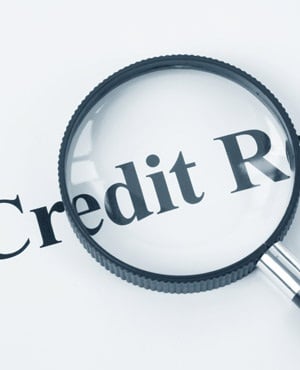
Johannesburg - It is important to note that credit amnesty will not free consumers of the obligation to pay their debt, according to Chantel Cronje, legal advisor at Legal & Tax.
"The debt must still be settled if you are to keep your credit record clean in the future," she warns.
The South African government has implemented a credit information amnesty from April 1 this year. The amnesty will give all consumers a fresh start with a clean credit record.
"This is great news if you are one of the many South Africans struggling to secure a job or a loan for a car or home as a result of a poor credit record, says Cronje.
According to the Department of Trade & Industry, about half of South Africa’s 21 million credit active consumers are behind or struggling with their repayments.
“Government is giving them a clean slate as it standardises and tightens lending requirements with new laws," explains Cronje.
"This is a welcome development for you if you can’t get a bond or loan, because you struggled to pay off a credit card three or four years ago.”
The record goes, but the debt remains
Cronje says the amnesty effectively instructs credit bureaus to remove adverse credit information about you from their files.
It forbids them from sharing this information with credit providers such as banks and retailers as well as employers and employment agencies.
Under the new amnesty:
- Credit bureaus have until May 31 to remove from their files any adverse (or negative) information they keep on record about your debt payment history and steps debtors have taken against you;
- Very importantly, the debt remains payable until you have settled it;
- Credit bureaus have until May 31 to scrub your credit record clean of words such "delinquent", "defaulter", "absconded" or “slow paying” if you have paid your debts;
- Such terms, going forward, must be removed from your profile once you have repaid a debt you defaulted on;
- But bureaus can keep on record for five years factual and detailed information that reflects your debt repayment behaviour.
You benefit automatically
Cronje says this credit amnesty is unlike the one implemented in 2007, where consumers needed to follow a certain process to benefit.
"This time, it is up to the credit bureaus to clear your credit record, along with everyone else’s," she says.
"Another major difference is that the new credit amnesty comes with tighter regulations governing how credit providers assess whether you can afford to take on more credit."
Educating consumers
In addition, government is being more proactive in educating consumers that the amnesty does not mean their debt will be written off.
New lending regulations
“Even with a clean credit record, it may be more difficult to qualify for a loan with the new affordability assessments," says Cronje.
"But this also means that there should be less reckless lending in South Africa, to the benefit of consumers and lenders alike.”
Cronje says these laws are meant to protect poorer consumers with low financial literacy from taking on debt they cannot afford to repay.
After the previous amnesty, almost 50% of the consumers, who obtained new credit, defaulted within a year. The new credit regulations aim to prevent that from happening again.
“If you have a poor credit record standing in the way of your life even after you’ve cleaned up your finances, you’ll benefit immediately from this amnesty,” says Cronje.
“This is especially good news if there are judgments against you. Now, you won’t need to go through a complex process with the courts to get any judgments against you set aside. But it remains as important as ever to be a savvy, careful and responsible borrower.”
She suggests that all new debts be settled to avoid a fresh blacklisting.
"Remember to settle your debts from before the amnesty to avoid being blacklisted again. If you are struggling to repay your debts, then you should talk to the banks and retailers that lent you money to restructure your repayments," she says.
"And if you’re really concerned that you may default, it could be a good idea to go into debt counselling before it is too late,"
Debt counselling is a legal process where you apply to have your debt restructured so that you can pay household expenses and still be able to pay off debt at a reduced instalment at the end of the month.
Unwilling credit providers can be forced through the debt counselling process to accept restructured repayments.
- Fin24
Help us help you by taking our second annual Debt survey and you could win R3 000, or add your voice by sharing your debt experiences, debt-busting tips and insights. Have a question? Ask our experts.
"The debt must still be settled if you are to keep your credit record clean in the future," she warns.
The South African government has implemented a credit information amnesty from April 1 this year. The amnesty will give all consumers a fresh start with a clean credit record.
"This is great news if you are one of the many South Africans struggling to secure a job or a loan for a car or home as a result of a poor credit record, says Cronje.
According to the Department of Trade & Industry, about half of South Africa’s 21 million credit active consumers are behind or struggling with their repayments.
“Government is giving them a clean slate as it standardises and tightens lending requirements with new laws," explains Cronje.
"This is a welcome development for you if you can’t get a bond or loan, because you struggled to pay off a credit card three or four years ago.”
The record goes, but the debt remains
Cronje says the amnesty effectively instructs credit bureaus to remove adverse credit information about you from their files.
It forbids them from sharing this information with credit providers such as banks and retailers as well as employers and employment agencies.
Under the new amnesty:
- Credit bureaus have until May 31 to remove from their files any adverse (or negative) information they keep on record about your debt payment history and steps debtors have taken against you;
- Very importantly, the debt remains payable until you have settled it;
- Credit bureaus have until May 31 to scrub your credit record clean of words such "delinquent", "defaulter", "absconded" or “slow paying” if you have paid your debts;
- Such terms, going forward, must be removed from your profile once you have repaid a debt you defaulted on;
- But bureaus can keep on record for five years factual and detailed information that reflects your debt repayment behaviour.
You benefit automatically
Cronje says this credit amnesty is unlike the one implemented in 2007, where consumers needed to follow a certain process to benefit.
"This time, it is up to the credit bureaus to clear your credit record, along with everyone else’s," she says.
"Another major difference is that the new credit amnesty comes with tighter regulations governing how credit providers assess whether you can afford to take on more credit."
Educating consumers
In addition, government is being more proactive in educating consumers that the amnesty does not mean their debt will be written off.
New lending regulations
“Even with a clean credit record, it may be more difficult to qualify for a loan with the new affordability assessments," says Cronje.
"But this also means that there should be less reckless lending in South Africa, to the benefit of consumers and lenders alike.”
Cronje says these laws are meant to protect poorer consumers with low financial literacy from taking on debt they cannot afford to repay.
After the previous amnesty, almost 50% of the consumers, who obtained new credit, defaulted within a year. The new credit regulations aim to prevent that from happening again.
“If you have a poor credit record standing in the way of your life even after you’ve cleaned up your finances, you’ll benefit immediately from this amnesty,” says Cronje.
“This is especially good news if there are judgments against you. Now, you won’t need to go through a complex process with the courts to get any judgments against you set aside. But it remains as important as ever to be a savvy, careful and responsible borrower.”
She suggests that all new debts be settled to avoid a fresh blacklisting.
"Remember to settle your debts from before the amnesty to avoid being blacklisted again. If you are struggling to repay your debts, then you should talk to the banks and retailers that lent you money to restructure your repayments," she says.
"And if you’re really concerned that you may default, it could be a good idea to go into debt counselling before it is too late,"
Debt counselling is a legal process where you apply to have your debt restructured so that you can pay household expenses and still be able to pay off debt at a reduced instalment at the end of the month.
Unwilling credit providers can be forced through the debt counselling process to accept restructured repayments.
- Fin24
Help us help you by taking our second annual Debt survey and you could win R3 000, or add your voice by sharing your debt experiences, debt-busting tips and insights. Have a question? Ask our experts.




 Publications
Publications
 Partners
Partners











